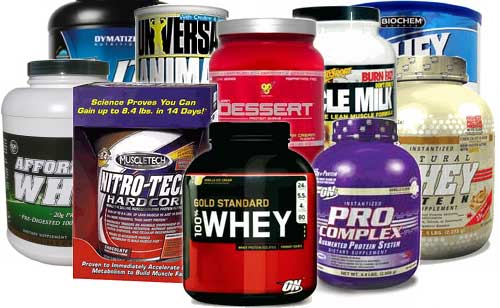By Pranav Iddamsetty | UTS Staff Writer | SQ Online (2015-16)

One day, I came back to my room, to find my friend with a large box from Amazon. At first, I thought nothing of it, but then he invited me over to show me the contents. The box turned out to contain many large containers of protein supplements. But as it turns out, my friend isn’t the only one who has began looking towards supplements. This phenomenon is becoming more and more common: athletes and non-athletes alike are turning to supplements to improve their performance during training and competition. Within the past month, the International Association of Athletics Federations (IAAF) found that Russian Olympic runners were blood doping, a practice in which the amount of hemoglobin in the blood is boosted to maximize the use of oxygen in the body.Theses runners were subsequently banned from competing at the 2016 Olympics in Rio de Janeiro to ensure fairness in the competition. This need for a competitive edge doesn’t start at the professional level anymore. It starts very early on, and continues throughout people’s lives.
What are supplements? Supplements are generally a collection of vitamins, minerals, and proteins that can be consumed to compensate for an individual’s diet deficiencies. Recently, protein supplements have become more popular, especially as men, strive to achieve the mass-media popularized image of attractiveness, an image reflecting the ideas of muscles as essential to masculinity. When used in moderation and combined with consistent exercise, these supplements are useful for enhancing the body’s ability to generate muscle tissue. Though there are risks associated with using protein supplements, it is still important for overall health and fitness.
Protein is an essential nutrient that allows people to maintain and potentially build muscles. The recommended protein intake for an average healthy adult is 0.75 grams of protein per kilogram of bodyweight, while the recommendation for an active, athletic adult need about is 1.5 g of protein per kilogram. Since many of the foods that we regularly consume have protein, like meat and certain vegetables, With a properly balanced diet, most people can achieve this recommended daily intake without the need for additional protein supplements. However, with the increasing interest in bodybuilding and general performance enhancing for sports, people have started using protein supplements in order to achieve greater size and strength in their muscles.
The market for protein supplements is vast, but there are many issues that arise when considering them. The first major problem is the lack of official regulation on the contents of supplements or the facilities in which they are produced. The Food and Drug Administration (FDA), the government body in charge of regulating drugs and medications, does not officially regulate the labeling on the containers. There are certain guidelines present for companies that market the supplements including “evaluating the safety and labeling of their products before marketing” the supplements, still leaving plenty of room for error. In many cases, the supplements have been found to contain an amount of protein far less than the one claimed on the label. Though the lower protein content is not harmful to people, it does pose a commercial problem as people don’t actually pay for what they think they are paying. Aside from the marketing, protein supplements do pose some risk to users and their health.
As with drugs and other types of supplements, protein supplements do have some associated health risks. Some protein supplements have been found to contain traces of heavy metals such as arsenic cadmium, lead, and mercury. Though they are present only in small amounts, the heavy metals accumulate in the body and can lead to many conditions such as vertigo, delirium, and insomnia. Improper use or overuse of protein supplements also has many associated risks. Ketone bodies are metabolic components that are produced when fat is broken down by the body . If protein builds up, this leads to ketosis, a relatively common state for the body to be in which elevated amount of ketone bodies are found in the bloodstream . Prolonged or increased ketosis causes ketoacidosis, a condition in which the blood pH drops to dangerously low levels. High levels of ketone bodies can also affect kidney function, especially when considered alongside the exercise usually associated with protein supplement use. Exercise dehydrates the body, which then combined with the water required by the kidneys to excrete the excess protein, could potentially cause severe dehydration if the supplement user does not drink enough water.

Most people don’t require protein supplements, especially if they are only doing an average level of exercise. When considering whether to use protein supplements, make sure that you are aware of the risks and stay informed to appropriately use the supplements.Though it is difficult to find proper information, you must do research to avoid the potential risks. Ultimately, the most effective way achieve that dream body is actually working out consistently, eating healthy, along with a well planned course of vitamin and protein supplements. Of course, you won’t suddenly turn into Arnold Schwarzenegger, but let’s be honest: who needs to be that big anyways?
[hr gap=”0″]
Sources:
- http://healthandwellness.kaplan.edu/articles/nutrition/Protein%20Supplements.html
- http://www.usatoday.com/story/sports/olympics/2015/11/13/russia-track-suspension-doping-iaaf-rio-olympics/75722032/
- http://www.healthaliciousness.com/articles/vegetables-high-in-protein.php
- http://www.livestrong.com/article/299115-protein-powder-toxicity/
- http://www.fda.gov/Food/DietarySupplements/
- http://www.webmd.com/fitness-exercise/blood-doping
- http://www.medicinenet.com/arsenic_poisoning/page3.htm#what_are_the_symptoms_of_arsenic_poisoning

